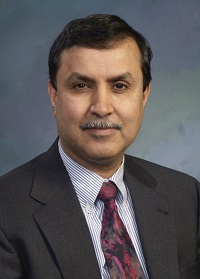Top Sleep Tips for Kids and Teens
Nov 18, 2019 When it comes to good sleep habits, the old saying "early to bed, early to rise, makes a person healthy, wealthy and wise" has never been truer. Ibrahim F. Abdulhamid, M.D. clinical director, Pediatric Sleep Center on staff at the Children’s Hospital of Michigan offers the following sleep tips for kids and teens.
When it comes to good sleep habits, the old saying "early to bed, early to rise, makes a person healthy, wealthy and wise" has never been truer. Ibrahim F. Abdulhamid, M.D. clinical director, Pediatric Sleep Center on staff at the Children’s Hospital of Michigan offers the following sleep tips for kids and teens.
- The amount of sleep needed for optimal brain development in children varies with age. Newborns sleep up to 20 hours per day. The sleep requirement decreases in toddlers down to 12 to 14 hours of nightly sleep with naps during the day.
- A child’s bedroom should be cool, quiet and comfortable. Children who stare at clocks should have their clocks turned away from them. Bedtime should follow a predictable sequence of events, such as brushing teeth and reading a story.
- Avoid spending lots of non-sleep time in bed — spending hours lying on a bed doing other activities before bedtime keeps our brains from associating the bed with sleep time.
- Going to bed in a timely manner, assuring sufficient sleep duration, is the key to getting up on time in the morning, refreshed.
- Keep consistent bedtimes and wake times every day of the week. Late weekend nights or sleeping-in can throw off a sleep schedule for days.
- Adolescents can benefit from a daytime nap. A short nap (20 to 30 minutes) in the afternoon has shown to improve physical efficiency and cognitive performance. The key here is that the nap should not be longer than 45 minutes or else grogginess kicks in.
- Avoid high stimulation activities just before bed, such as watching television, playing video games, communication with friends, or exercise. It is especially important to avoid these activities during a nighttime awakening. It is best not to have video games, televisions, computers or phones in the child’s bedroom.
- Avoid caffeine (sodas, chocolate, tea, coffee) in the afternoons/evenings. Even if caffeine doesn’t prevent falling asleep it can still lead to shallow sleep or frequent awakenings. Caffeine should be avoided within 4 to 6 hours of bedtime.
- If a child is awake in bed tossing and turning, it is better for them to get out of bed to do a low stimulation activity, (i.e., reading) then return to bed later. This keeps the bed from becoming associated with sleeplessness. If the child is still awake after 20 to 30 minutes, spend another 20 minutes out of bed before lying down again.
As home to metropolitan Detroit’s only sleep center exclusively for children, the Children’s Hospital of Michigan has helped thousands of children improve their sleep. The Children’s Hospital of Michigan offers sleep centers at their specialty centers in Canton, Clinton Township, Dearborn and Detroit.
For further information or to schedule an appointment, call (313) 745-KIDS (5437) or toll-free at (888) 362-2500 or visit our sleep center page.





